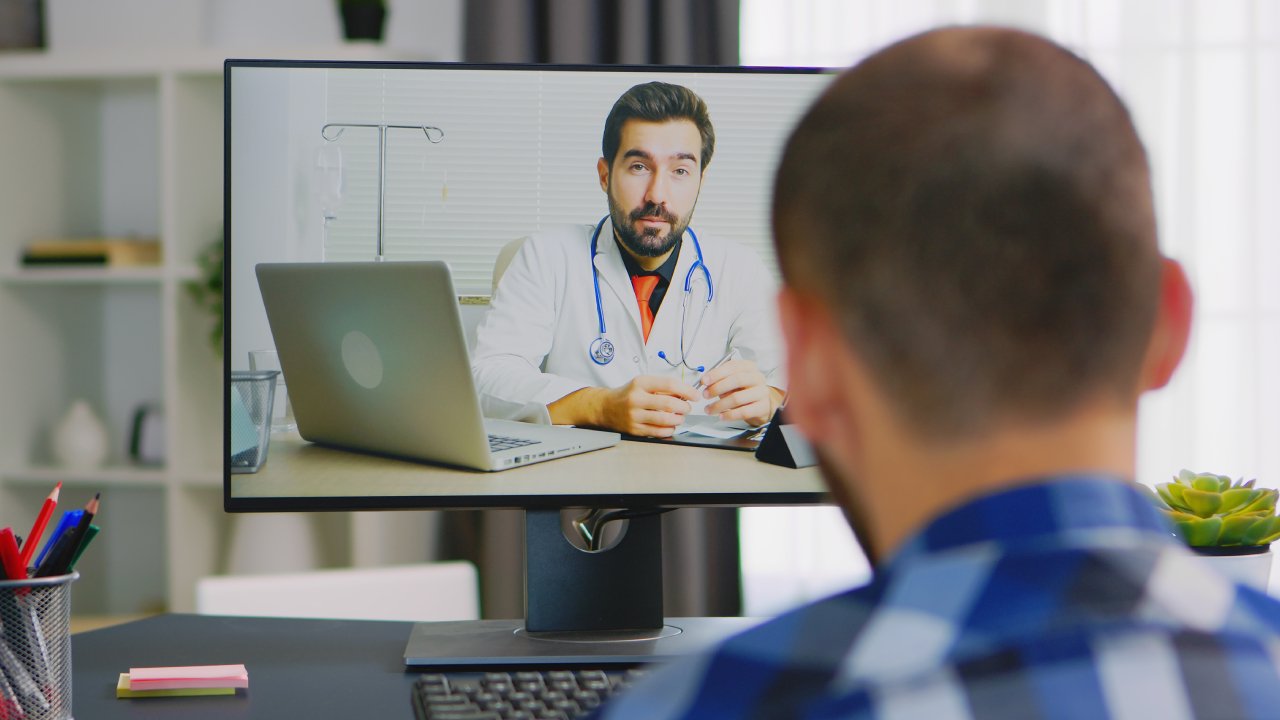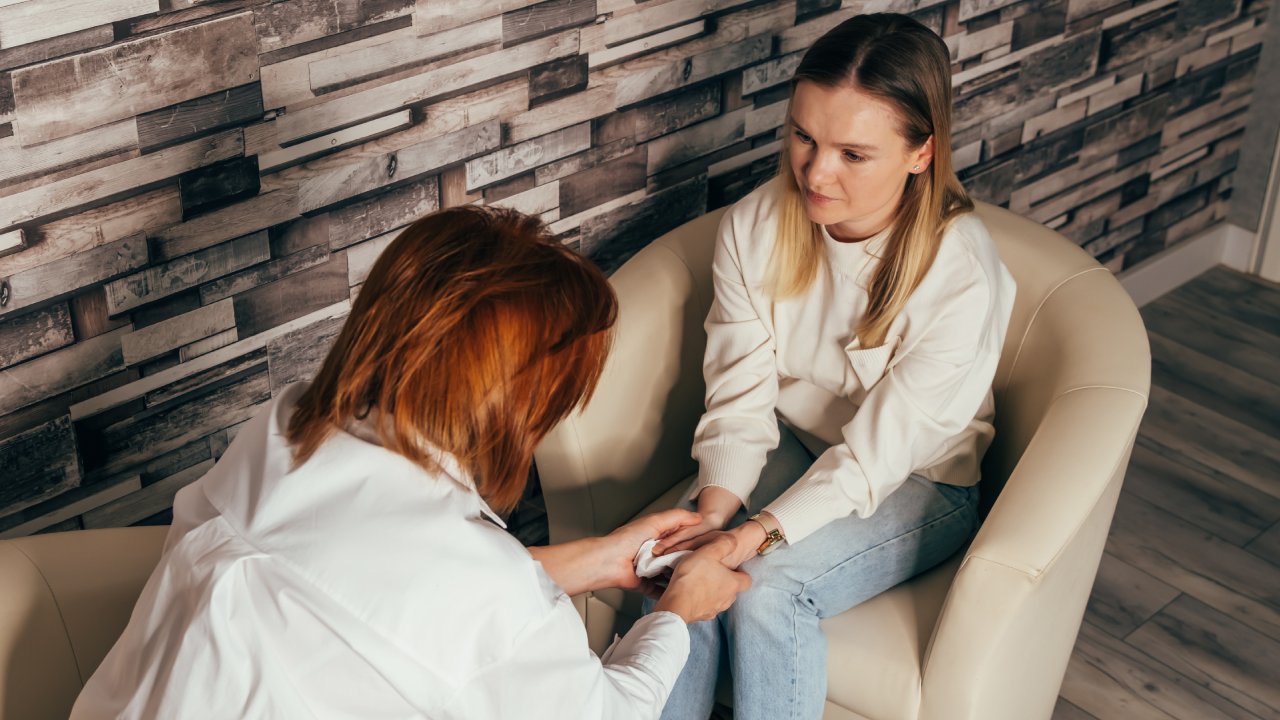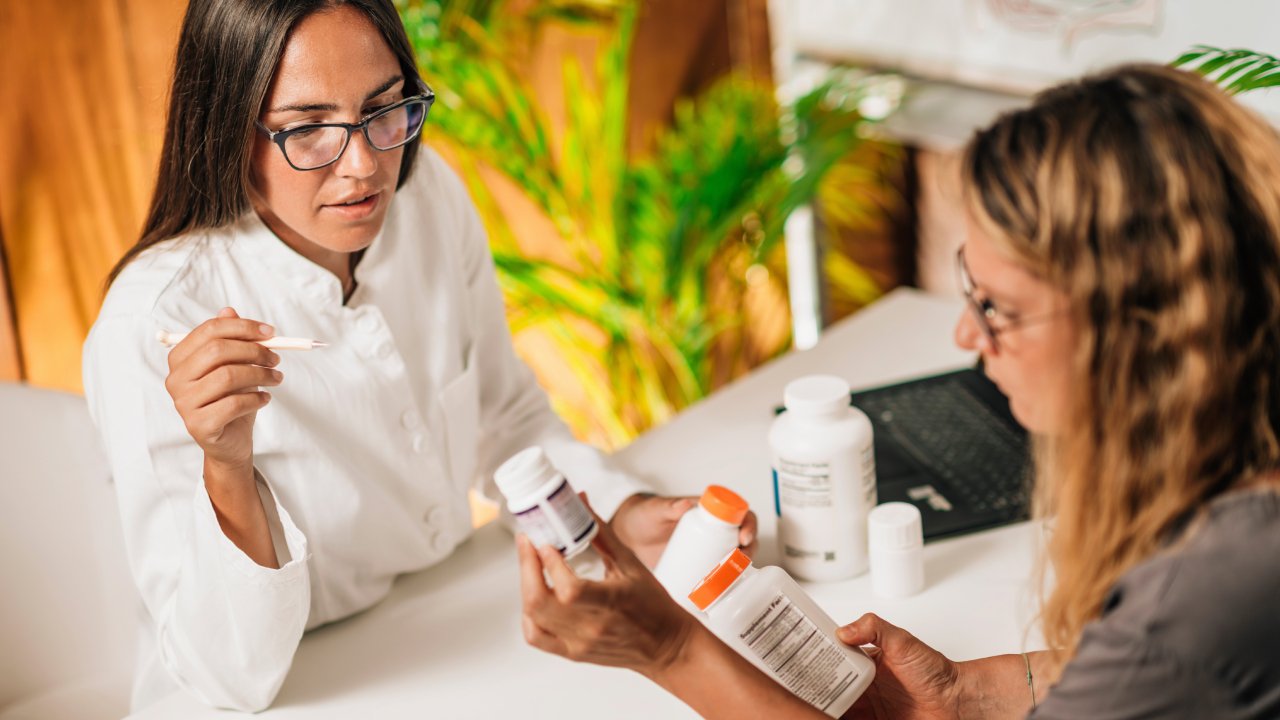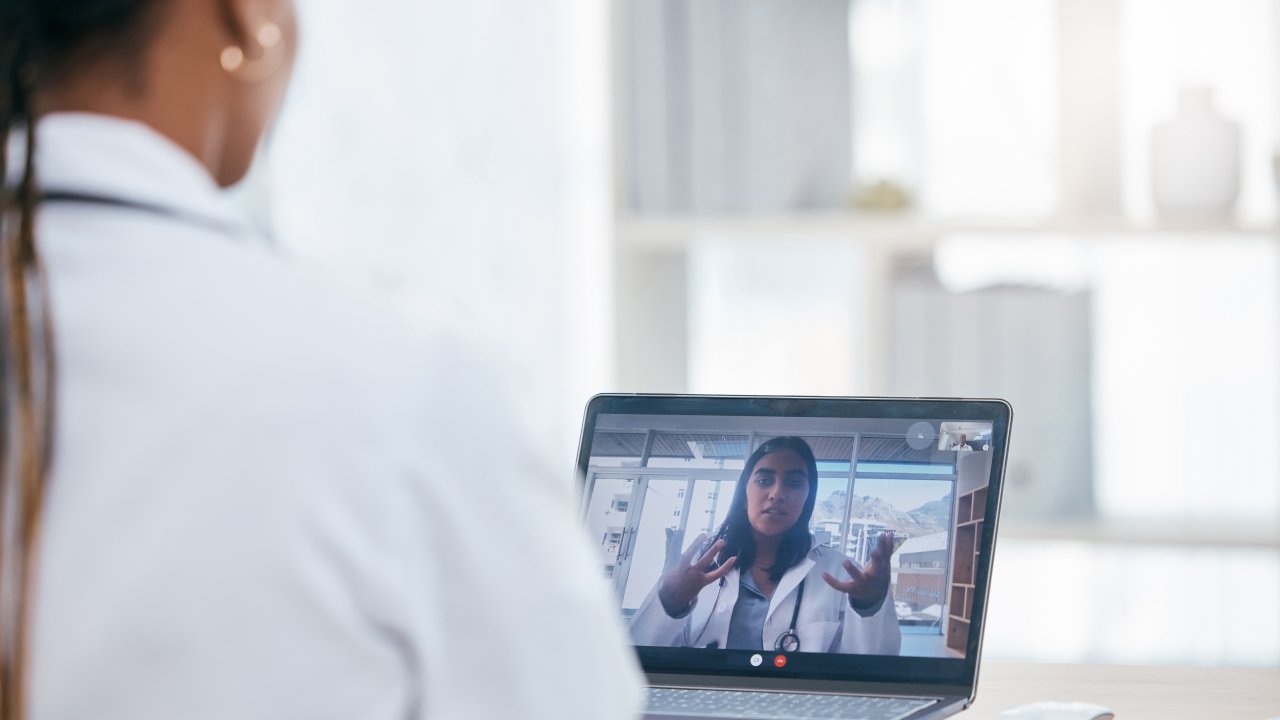Why Telehealth Rocks for Beating Addiction
At Overcoming Addictions LLC, we get it—fighting addiction is tough. That’s why our telehealth services are all about making your recovery journey as smooth and convenient as possible. We’re here to help you tackle those challenges head-on, right from the comfort of your home.
Easy Peasy Access
Telehealth makes getting help for addiction a breeze. No need to haul yourself to a treatment center; you can get the support you need without leaving your couch. Whether you’re dealing with opioid addiction, alcohol issues, or need suboxone treatment, our virtual services have got you covered.
Living in a rural area with few treatment options? No problem. Telehealth bridges that gap, cutting down on costs and making it easier to stick to your appointments. This means more structure and accountability, which are key for kicking addiction to the curb (Medical News Today).
Save Some Bucks
One of the best things about telehealth? It’s easy on the wallet. Forget about travel expenses, parking fees, or paying for a babysitter. By cutting out these extra costs, telehealth makes treatment more affordable and helps you stay on track without having to take time off work.
Fewer Missed Appointments
Let’s face it—life gets busy, and sometimes making it to appointments is a hassle. Telehealth takes away those barriers. No more worrying about traffic or work conflicts. This means you’re more likely to stick to your treatment plan, which is crucial for making progress and staying accountable (Maryland Recovery).
At Overcoming Addictions LLC, we’re all about supporting you every step of the way. Whether you need detox and rehab or long-term treatment, our telehealth services are designed to be convenient, cost-effective, and consistent. Let’s make your recovery journey a success, together.
How Telehealth Helps Beat Addiction
At Overcoming Addictions LLC, we get it—finding the right help for addiction is a big deal. Our telehealth services are here to make that journey a bit easier. Let’s break down how these services stack up in terms of keeping folks engaged, supporting medication-assisted treatment, and reducing the risk of overdoses.
Sticking with the Program
One of the biggest signs that a treatment plan is working is whether people stick with it. A 2022 study from Medical News Today found that folks using telehealth for addiction treatment had better retention rates. That’s a win because staying in the program is key to kicking addiction for good.
Another study from January 2020 to March 2021 looked at 3,642 people with substance use disorder (SUD). It found no major differences in staying sober, quality of life, financial health, mental well-being, or confidence in staying clean between those who got in-person care, a mix of in-person and virtual care, or just virtual care (NCBI). This means our telehealth services at Overcoming Addictions LLC are just as good as traditional methods. Check out our addiction treatment programs for more details.
Medication-Assisted Treatment
Medication-assisted treatment (MAT) uses meds along with counseling and behavioral therapies to treat substance use disorders. According to Medical News Today, people using telehealth were more likely to stick with their MAT for opioid misuse. This shows telehealth can help keep the treatment going strong, which is crucial for recovery.
At Overcoming Addictions LLC, we offer various medically assisted treatment options, including Suboxone medication treatment for opioid and alcohol addiction. Head over to our website for more info.
Lowering Overdose Risks
Overdose is a scary part of dealing with substance misuse. But Medical News Today reports that those using telehealth had a lower risk of medically treated overdoses. This is huge because it means telehealth not only works but also makes recovery safer.
At Overcoming Addictions LLC, we prioritize your safety. Learn more about our commitment to keeping you safe on our overcoming addictions llc addiction services page.
Our telehealth services for addiction recovery are backed by solid research and real patient success stories. We aim to provide accessible, effective, and safe treatment options for anyone seeking help. For more info on our telehealth services, visit the overcoming addictions llc telehealth services page on our website.
Things to Think About for Telehealth Addiction Services
Telehealth can be a game-changer for addiction recovery, but it’s not a one-size-fits-all solution. Let’s break down what you need to consider before diving in.
Your Personal Situation
How well telehealth works for you can depend on your own situation and needs. If you’re dealing with a severe addiction or need hands-on care, telehealth might not cut it. But if your addiction is milder or you can’t easily get to in-person services, telehealth could be a lifesaver. Money matters too—telehealth costs can be all over the place, so keep that in mind.
Mental Health Matters
Your mental health is a big deal when it comes to beating addiction. Telehealth can offer crucial mental health support, especially if you can’t get it otherwise. But not all telehealth services are the same. Some are better than others, so do your homework and pick a provider that offers solid mental health support. At Overcoming Addictions LLC, we’ve got your back with substance abuse and mental health support as part of our telehealth services.
Social Support
Having a strong social support system can make a huge difference in your recovery. Telehealth can offer some social support through online groups and forums, but it might not fully replace face-to-face group meetings or one-on-one sessions. Still, if you live far away from support groups or can’t get to them, telehealth can be a great alternative.
In short, telehealth can be super effective for many people, but it’s not for everyone. Think about your own situation, mental health needs, and social support before deciding. If you’re thinking about telehealth for addiction recovery, check out Overcoming Addictions LLC telehealth services to see how we can help you on your journey to recovery.
Challenges of Telehealth in Addiction Recovery
Telehealth services for addiction recovery have been a game-changer for many, but let’s talk about the bumps in the road. These can include feeling disconnected, access issues, and worries about privacy and security.
Feeling Disconnected
One big gripe folks have with telehealth for addiction recovery is that it can feel a bit cold compared to in-person meetings. Sure, it’s super convenient, but some people miss the face-to-face vibe. This can be tough for those who need extra support, are at high risk of relapse, or have unstable living situations (Maryland Recovery). At Overcoming Addictions LLC, we work hard to build strong bonds with our patients, whether we’re meeting in person or online.
Access Issues
Another hurdle is access. While telehealth has opened doors for many, it’s not a one-size-fits-all solution. It might not work well for those with severe addiction or who need hands-on care (Medical News Today). Plus, if you don’t have a good internet connection or aren’t tech-savvy, telehealth can be a real headache.
Privacy and Security Worries
Privacy and security are also big concerns. Sharing sensitive info online can make anyone uneasy, especially when it comes to addiction recovery (WIRED). At Overcoming Addictions LLC, we take your privacy seriously and follow strict rules to keep your info safe.
Despite these challenges, telehealth can still be a great option for many. It’s all about figuring out what works best for you. For more details on our telehealth services and how we tackle these issues, check out our Overcoming Addictions LLC Telehealth Services page.
Insurance Coverage for Telehealth Addiction Services
Telehealth is booming, and many folks are curious about insurance coverage for addiction treatment via telehealth. The good news? Most insurance companies do cover some telehealth services, including addiction treatment. But, the specifics can vary depending on your plan.
What’s Covered?
Insurance companies do offer telehealth coverage, but how much they cover can be all over the map. It depends on your insurance plan, where you live, and the type of treatment you need.
For instance, some plans might cover detox, rehab, medication-assisted treatment, and outpatient recovery programs. Others might only cover specific treatments like Suboxone medication or support for alcohol issues.
The best move? Call your insurance provider to get the lowdown on what’s covered. If your plan falls short, you might want to check out other addiction treatment options.
Different Insurance Plans
Insurance plans are like snowflakes—no two are exactly alike. Some might cover a big chunk of your telehealth addiction services, while others might leave you with a hefty bill.
Typically, insurance plans that cover telehealth addiction services will include:
- Initial assessments and evaluations
- Individual and group counseling sessions
- Medication-assisted treatment
- Follow-up appointments and check-ins
Make sure you know the ins and outs of your insurance plan and how it handles telehealth addiction services. Also, keep an eye on privacy concerns. Some patients worry about their data being tracked on these platforms (WIRED).
At Overcoming Addictions LLC, we’re here to help you sort through the details and find a treatment plan that fits. Whether you need detox and rehab, long-term recovery support, or help with cravings and withdrawals, we’ve got the resources and know-how to assist you. Check out our telehealth services for addiction and see how we can support your recovery journey.
How COVID-19 Changed Telehealth for Addiction Recovery
The COVID-19 pandemic turned the healthcare industry on its head, especially in addiction recovery. Social distancing and fewer face-to-face interactions pushed telehealth into the spotlight, changing how treatment is delivered and putting a bigger focus on mental health.
Telehealth Boom
When the pandemic hit, telehealth services for addiction recovery took off. With restrictions making in-person group sessions tough, telehealth became the go-to option. It allowed healthcare providers to keep offering care and support, from advice and monitoring to therapy sessions and interventions (Maryland Recovery).
Our telehealth services for addiction have helped us reach more patients and keep care consistent during these tough times. Whether it’s opioid addiction treatment, alcohol addiction help, or addiction counseling services, we’ve made sure our patients get the support they need.
New Treatment Methods
With telehealth on the rise, treatment methods had to adapt. Telepsychiatry, for example, saw a big uptick. Studies show that telepsychiatry works just as well as in-person treatment for substance abuse patients. But combining telepsychiatry with face-to-face sessions seems to work even better (NCBI).
At Overcoming Addictions LLC, we’ve tweaked our addiction treatment programs to include telehealth. From medically assisted treatment for addiction to support for cravings and withdrawals and mental health support, we’ve adjusted our services to fit our patients’ needs during these trying times.
Mental Health Matters
The pandemic has shone a light on the importance of mental health in addiction recovery. Telehealth has been key in providing care and support, letting doctors and care professionals monitor progress and offer help even in virtual sessions.
We’ve seen the benefits of adding mental health support to our telehealth services firsthand. By offering continuous support and keeping structure and accountability—two must-haves in recovery—we’ve helped our patients stay on track during these challenging times. For more on our mental health support services, check out Overcoming Addictions LLC addiction therapy.
Through more telehealth use, new treatment methods, and better mental health support, telehealth has become a vital tool in addiction recovery during the COVID-19 pandemic. As we keep navigating these tough times, we’re committed to giving our patients the best care and support through our telehealth services.
Case Studies and Success Stories
At Overcoming Addictions LLC, we’ve seen some amazing transformations through our telehealth services for addiction recovery. Let’s dive into some real-life stories and see how telehealth has made a difference.
Patient Experiences
One of the coolest things about our telehealth services is how easy it makes getting help. Whether you’re battling opioid addiction, alcohol issues, or prescription drug abuse, our telehealth services for addiction have opened doors for folks who might otherwise struggle to get treatment. Imagine living in a rural area or having physical challenges that make traveling tough—telehealth brings the help right to your living room. This convenience has cut down on missed appointments, keeping people on track and accountable for their recovery.
Benefits of Telehealth
Telehealth for addiction recovery isn’t just convenient; it’s also easy on the wallet. No more spending money on gas or taking time off work. Patients can focus on getting better without the extra stress. Our telehealth rehab services let us keep an eye on progress and offer support, even through a screen. This has been a game-changer for our suboxone medication treatment and support for cravings and withdrawals programs.
Long-Term Recovery Results
Our long-term addiction treatment recovery programs have seen some pretty awesome results, thanks to telehealth. Continuous support and structure mean patients can keep their recovery momentum going, even after formal treatment ends. The flexibility and ease of access with telehealth have been key in helping folks manage their recovery over the long haul.
In short, our journey at Overcoming Addictions LLC shows just how powerful telehealth can be in treating addiction. From making it easier to get help to boosting long-term recovery, telehealth is changing the game. Want to know more? Check out our telehealth services.
Future of Telehealth in Addiction Recovery
As we keep up with the digital boom, telehealth services for addiction recovery are looking brighter than ever. With strides in telepsychiatry, blending with traditional care, and a boost in policy and funding, we’re moving towards a more accessible and effective way to tackle addiction.
Telepsychiatry: The Game Changer
Telepsychiatry has come a long way, especially for addiction recovery. A study by NCBI found that telepsychiatry for substance abuse patients surged during the pandemic, showing similar results to in-person treatment. But here’s the kicker: combining telepsychiatry with face-to-face sessions works even better. This mix of digital and traditional methods offers a more rounded treatment. For instance, Overcoming Addictions LLC provides telehealth services for addiction, making it easier for folks to get help with cravings and withdrawals and other recovery tools.
Blending Telehealth with Traditional Care
Mixing telehealth with in-person care is shaping up to be a winning combo for addiction recovery. The same NCBI study mentioned earlier shows that telepsychiatry alone is as good as in-person treatment. But when you mix the two, the results are even better. At Overcoming Addictions LLC, we get that a well-rounded approach is key. That’s why we offer telehealth rehab services along with our on-site programs like detox and rehab services. This way, we can help more people on their road to recovery.
Policy and Funding: The Backbone
Policy and funding are also crucial for the future of telehealth in addiction recovery. The pandemic saw a spike in drug overdose deaths, with around 841,000 people in the U.S. dying from overdoses between 2000 and 2019. To tackle this, the Substance Abuse Prevention and Treatment Block Grant (SABG) funding was bumped up to $3.5 billion in 2022, a $1.7 billion increase from 2021. This money will go towards rolling out evidence-based treatment and prevention programs nationwide (NCBI).
At Overcoming Addictions LLC, we’re all in on using these advancements and resources to offer top-notch telehealth services for addiction recovery. We believe everyone deserves quality addiction treatment, and we’re here to support you every step of the way.











